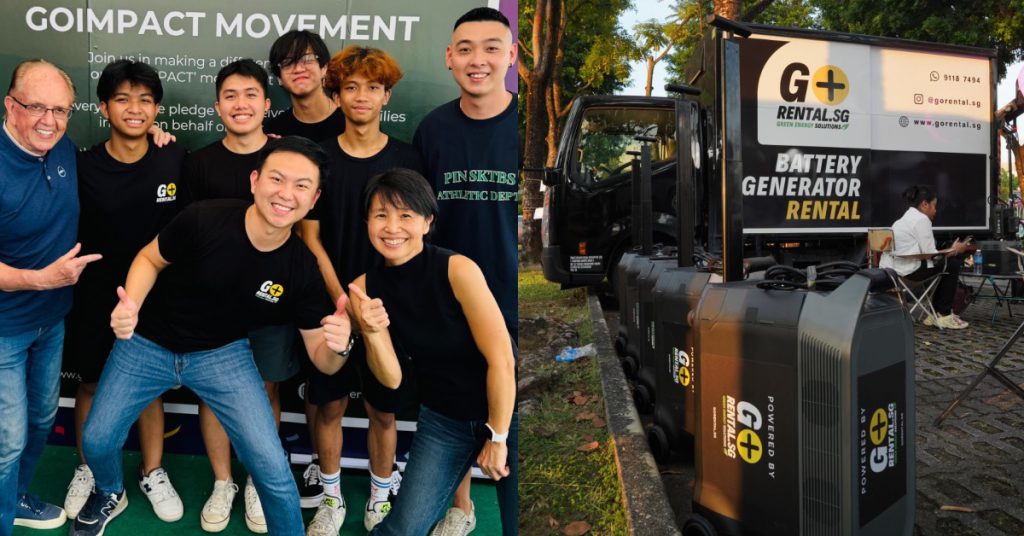If you Google the question “Will robots take my job?”, you’ll find that there are over 74.8 million results.
With automation and AI continuing to rise to new heights of innovation, it’s not surprising that people are worried.
After all, if a machine is capable of being smarter than us and better than us at doing work, and doesn’t require any rest, where does that leave humans?
The team at MDEC (Malaysia Digital Economy Corporation) took such fears and other questions about our future in the workplace to leaders, in varying industries and company sizes, to give us an insight into their thoughts about automation and the future of work.
What Of The Talent In Malaysia?
But first, we need to look at the existing workforce. There has been a lot said about the state of the talent pool in Malaysia.
Rather than rehash that topic, the business leaders were instead asked for their more positive experiences, to see if there is some measure of hope for the future.
According to Ammar Zolkipli, the Managing Director of ITXOTIC, he actually feels that Malaysians are misunderstood, when it comes to hiring.
“Malaysians are well known to be quiet and shy, and have a hard time communicating. This sometimes comes of as not having the capability or no suited to handle difficult tech challenges. What I find though is, especially with fresh graduates, they just lack guidance and empowerment,” he said.

He went on to explain that all the talents that he’s hired are very productive, and are as equally good at developing and solving the technical tasks given. He described them as motivated to complete the work, and have surpassed his expectations on quality of work and capability.
Ng Sang Beng, the CEO of Aemulus on the other hand acknowledged that the talent pool has changed over the years.
“The saddest truth is, 20 years ago, candidates came in well prepared; today, candidates usually leave most of the technical questions blank, yet without remorse…”
He did add that the younger generations have more to see and their perspectives are much wider, but the more successful ones on the far right of the bell curve tend to look beyond money and trade their time with learning, putting in a lot of effort, and looking beyond 2 to 3 years.

Mo Jalil of METAPAIR had his own insight to offer: he found that our almost-inborn Malaysian skill of being multilingual to be “mind-boggling”.
“For instance, many Malaysians speak to each other in “Manglish” which I’ve found difficult to grasp but when they speak to me, they almost instantly switch from Manglish to English. Malaysians are truly gifted in languages,” he said.
But does having good-enough talent mean that we are safe from the disruption headed by automation and AI?
First we have to examine how exactly will the workplace and various industries now change.
The Disruption Of The Status Quo
As succinctly summarised by Raymond Devadass, the CEO of Daythree, “The digital workforce is slowly but surely taking over most of our routine and repetitive jobs.”
“With the advent of Artificial Intelligence and advancement in Machine or Cognitive Learning, more and more tasks will be automated with the use of cutting-edge technologies,” he added.
Ammar acknowledged that digital technology & automation are starting to be a concern across all industries.
“A business like agriculture will probably need to consider hiring data scientists and AI developers to solve the challenges to improve their yield and crop quality, and less field workers to tend to the land. This scenario is most probably true in any of the other ‘traditional’ industries too,” he said.
“In construction, manufacturing, healthcare, banking, there already concerns of old jobs being phased out because of automation, and a new types of jobs being created.”
“It’s probably in the best interest of the country and the businesses to learn about new technology, and do a phased plan to adapt new technology to stay competitive.”
– Ammar Zolkipli
According to Catherine Lian, the Managing Director of IBM Malaysia, industries will continue to experience disruption as technologies continue to emerge and impact how we learn, work and live.
Mo Jalil had this to add: “Financial trading has been automated for some time now and programmatic ad buying has been a staple in the advertising industry for years. We see this as the first step on a similar road for partnerships, making them as easy as a few clicks of a button rather months of work and back and forth negotiations. Why wouldn’t people want things to be easier, cheaper, more transparent?”

Future-Proofing 101
All the leaders agreed that they are already seeing roles and positions in their company that didn’t even exist 3 years ago, thanks to AI and automation.
Catherine said, “Job roles such as hybrid cloud architects, enterprise IX designers, AI engineers and blockchain specialists are becoming very common roles we are hiring for.”
This trajectory will likely continue as technology evolves.
When it comes to preparing her own company for the future, Catherine expressed her confidence.
“I can say that thanks to [the IBM team’s] commitment to learning and work on challenging projects, they are ready for the future. You can prepare yourself by strengthening core technical and business skills and cultivating soft skills.”
Even non-tech professionals are applying Robotic Process Automation to eliminate repetitive and unnecessary processes.
“For example, at IBM, we are in the process of automating our accounting and bookkeeping journals using RPA. So far, the team has automated more than 3 million journal items since 2017, from a total of 40+ million manual journals to automate.”

In a more general sense, Raymond added, “As individuals, we need to reinvent and upskill ourselves. Our education system needs to be revisited to keep up with the changing landscape. Garry Kasparov, the Russian Chess Grandmaster said in an interview not too long ago, ‘Machines won’t make us obsolete, our complacency might’.”
Speaking more of businesses, he pointed out that companies must evaluate and assess if their current processes and systems allow them the flexibility to provide a seamless digital customer experience.
They also have to always remain attentive to the digital ecosystem and know when the industry it is in is ripe for digital disruption and act swiftly.
“Every company has to undergo a ‘digital reinvention’ by rethinking its customer relationship management policies and customer experience strategy which can be enhanced mainly by building and growing the business around the customer’s needs.”

The answers from the respondents in this article were compiled by the team at MDEC, in conjunction with Labour Day.
- Click here to read our previous piece about what Malaysian founders would do if their reputations are attacked.
VP Asks is a series where we gather professional and public opinions on topics that matter. Want to suggest a topic for us to talk about? Leave a comment here or send the suggestion to our Facebook page.












